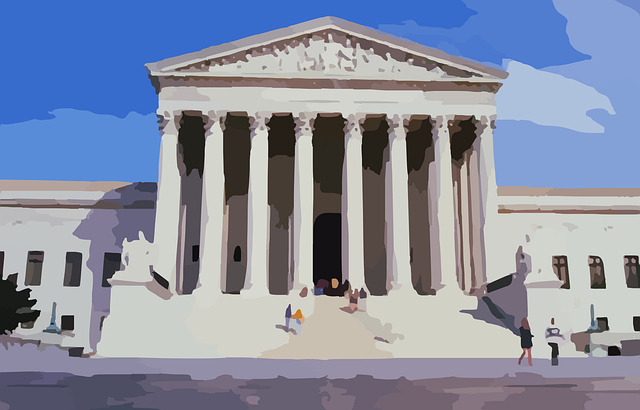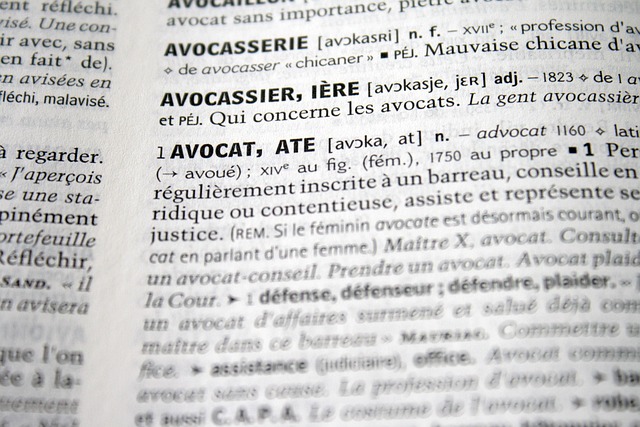Whistleblower Protection Laws (WPL) safeguard individuals exposing organizational misconduct from retaliation and property disputes. Skilled legal counsel is vital to navigate WPL and protect whistleblowers' rights under state and federal law. Strategic approaches, including meticulous documentation and media attention, ensure successful outcomes in complex legal solutions for property ownership disputes involving white-collar crimes. Well-established legal frameworks guide parties towards justice and resolution.
Whistleblower Protection Lawsuits: Navigating Legal Solutions for Property Ownership Disputes
Many individuals face significant challenges when they decide to speak up about illegal or unethical activities within their organizations. Understanding whistleblower protection laws is crucial in ensuring these brave folks are shielded from retaliation. This article delves into the intricacies of whistleblower protection, focusing on legal rights regarding property ownership disputes. We explore strategies for effective lawsuits and resolve conflicts through innovative legal solutions.
- Understanding Whistleblower Protection Laws
- Property Ownership Disputes: Legal Rights
- Strategies for Effective Lawsuits
- Resolving Conflicts Through Legal Solutions
Understanding Whistleblower Protection Laws

Whistleblower Protection Laws (WPL) are a crucial legal framework designed to safeguard individuals who expose illegal or unethical activities within organizations from potential retaliation. These laws offer vital legal solutions for property ownership disputes arising from whistleblowing, ensuring that those who speak up remain protected throughout all stages of the investigative and enforcement process. By enacting these regulations, governments aim to foster a culture of transparency and accountability, particularly in high-stakes cases involving white collar and economic crimes.
WPL typically provide remedies against adverse actions taken by employers or relevant entities post-whistleblowing. This includes protection from termination, discrimination, and harassment. The laws also encourage individuals to come forward without fear, recognizing that their actions can play a pivotal role in uncovering corruption, fraud, or public health and safety hazards. Understanding WPL is essential for both whistleblowers and organizations, as it helps navigate the complexities of legal disputes related to property ownership in cases where employees choose to expose corporate misconduct.
Property Ownership Disputes: Legal Rights

When it comes to property ownership disputes, understanding one’s legal rights is paramount. In many cases, whistleblowers who expose white-collar and economic crimes find themselves entangled in complex legal battles, which can extend to issues of property ownership. These disputes often arise when individuals or entities contest the legitimacy of a whistleblower’s claims or attempt to seize assets as a form of punishment or compensation.
Navigating these challenges requires skilled legal counsel who can offer tailored solutions. Achieving extraordinary results in property ownership disputes involves a deep understanding of both state and federal laws, especially considering the unique circumstances surrounding whistleblowing. Across the country, there are numerous successful examples where legal strategies have protected whistleblowers’ rights to their properties, ensuring they can continue their vital work without undue interference or financial burden.
Strategies for Effective Lawsuits

When it comes to Whistleblower Protection Lawsuits, an effective strategy is paramount for achieving a favorable outcome. One crucial approach involves meticulous documentation and evidence gathering, ensuring that all disclosures are well-supported and compliant with legal requirements. This includes detailed records of unethical practices, communications with relevant authorities, and any retaliation faced.
Moreover, Legal Solutions for Property Ownership Disputes often benefit from strategic case selection and public interest considerations. By choosing cases that highlight systemic issues or have broader implications, whistleblowers can attract media attention and public support. This, in turn, can pressure defendants into settling or strengthen the hand of plaintiffs during jury trials, potentially leading to achieving extraordinary results. Engaging experienced legal counsel who understand the nuances of whistleblower protection legislation is also essential for navigating complex cases and securing the best possible outcome for the respective business and its whistleblowers.
Resolving Conflicts Through Legal Solutions

When it comes to resolving conflicts arising from legal solutions for property ownership disputes—including those involving white collar and economic crimes, individuals and organizations often face complex challenges. The intricate nature of such disputes demands a strategic approach, and one powerful tool is legal action. By utilizing well-established legal frameworks, parties can navigate these complexities and achieve resolution.
Through meticulous legal arguments and evidence presentation, those involved can advocate for their rights and interests. In many cases, this may lead to a complete dismissal of all charges, especially when the defense effectively challenges the validity or intent behind the alleged offenses. The field of white collar defense is adept at untangling these intricate web of disputes, offering a path towards justice and, in some instances, a complete exoneration.
Whistleblower protection lawsuits are a crucial legal tool for those who expose corporate or government wrongdoing. By understanding and utilizing the protections offered by whistleblower laws, individuals can navigate complex disputes related to property ownership while ensuring their rights are upheld. Through strategic legal approaches, from comprehending relevant legislation to employing effective litigation strategies, those involved can resolve conflicts and find appropriate legal solutions for property ownership disagreements. Remember, seeking professional guidance is key to navigating these intricate matters successfully.






